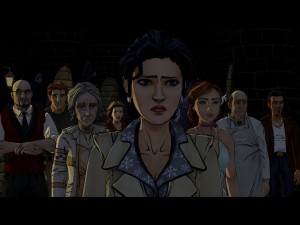A few years ago I wrote a post talking about what made serialized storytelling great and I recently talked more about it while comparing it to the classic show Doctor Who. For today’s post, I want to talk more about non serialized stories and how they differ where it comes to what makes them great from serialized stories. To help me out, I turn to another classic TV show that I’m sure my younger audience has no idea about.
Non Serialized Stories:
To recap, serialized stories are when episodes of a show are connected to each other to create one long standing narrative. Some great examples would be Doctor Who, Breaking Bad and Game of Thrones where there is a story that exists between the episodes of the show as a whole or for the season.
Non serialized means that the episodes don’t have any real connection outside of the main character(s). There may be a loose plot that defines the series or sets up an episode, but outside of major developments there is no connection between episodes. Some examples would be the numerous sitcoms made over the years such as Seinfeld, The Big Bang Theory or any number of the Law and Order and CSI spinoffs.
The big difference between non serialized and serialized stories is the reason to watch them. A serialized story grips you by making you want to keep watching to see how things turn out or what twists will happen. A non serialized story on the other hand lives or dies based on the strength of the actors and actresses involved. Because the story doesn’t really change from episode to episode, it’s more about becoming invested in the actors and the characters they portray each week.

Most videos are about non serialized stories, however it’s not the plot or characters that bring people back but the gameplay
Now just because you watch for the actors don’t mean that the show can get away with poor writing.
In fact the best non serialized shows and stories need to have amazing writing each episode to keep you compelled to watch your favorite actors do their thing. With that said, let’s turn to this post’s example of an amazing non serialized story.
Columbo:
You can thank fan of the site and owner of Space Game Junkie Brian Rubin for getting me hooked on Columbo and the inspiration for this post. Columbo was a crime drama that ran from the 70s to the early 00’s starring Peter Falk as the titled character. What made the show interesting were two elements.
First was that it was the complete opposite of crime dramas then and to this day. At the start of the show we find out who the murderer is and how they did it and the reason to watch was to see how Columbo would solve the case with his keen eye for detail.
Secondly this was the only show that I can think of without an ensemble cast of actors. Outside of Peter Falk, every episode featured a completely different cast and setup for murder and the show was framed more like a TV movie than a regular series. This was also the reason why it ran for so long as each episode took longer to produce compared to other shows.
The only constants were that Peter Falk was Columbo and there was a murder that needed to be solved. This gave the writers a lot of freedom in coming up with a variety of situations for the viewer to enjoy and more importantly it made a generation fall in love with the character and Peter Falk’s portrayal. As I mentioned further up, non serialized stories live or die based on the actors involved and Peter Falk along with the writing kept Columbo going for decades.
In my previous post, I talked about the difficulties involved with serialized storytelling in video games but in many ways non serialized stories can be even harder to fit into a game narrative.
Creating Creative Characters:
While most video games are a form of non serialized storytelling, they are not great examples of it. The reason is that as we’ve discussed, the writing and the characters have to be superb in order to keep people interested in a story without any real long term growth.
The problem with video games is that while the stories are meant to be self contained, the characters themselves are not strong enough to support the story on their own. Thinking about it, the only characters that I can think of off the top of my head that have been in multiple successful games based on a non serialized story would be Nathan Drake and maybe Snake from Metal Gear Solid. Most often the main character is not the real focus of the game such as in Mario where you could put any Nintendo character in the same situation and it would play the same; the only reason why Mario is used of course is for IP branding.

Telltale’s focus on season wide storytelling would be an interesting fit to try and create a non serialized character driven series
To a lesser extent, we could probably count the Phoenix Wright series as a case with both serialized and non serialized elements at play:
Each game in the series is non serialized with nods and Easter eggs to previous games while the cases within a single game have a loose connection to an overall serialized plot.
The advantage of games built around non serialized stories is that just like with TV shows, the writers are free to put anything they want into each episode or game without having to connect them. Returning to my post about hard and soft choices, you could have a game with lots of hard choices and multiple endings to it which you won’t have to write subsequent games around as everything is self contained within the singular title.
Honestly I’m surprised that we haven’t seen Telltale go down this road yet with an original adventure game series and keep to telling serialized stories with their licensed properties.
Just One More Thing:
Making a game around a non serialized story is easy; it’s been the basis for so many series over the years. But writing a character that is deep and popular enough to sustain a series despite making use of the same gameplay is tough. This kind of development is still somewhat new to the industry as again we focus on gameplay transitioning between games, not characters and writing.
Despite the advances the industry is taking in terms of developing better plots and characters, the chance that we’ll see a video game series on the strength of the character and writing last for over two decades is pretty slim. But as developers pay more attention to writing and storytelling, who knows what the future holds.


